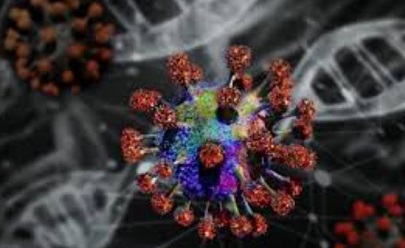Unraveling The Intricacies of SARS-CoV-2 Evolution: The Role Of Envelope Protein Mutation T9I In Autophagy Resistance
Nikhil Prasad Fact checked by:Thailand Medical News Team Apr 26, 2024 1 year, 9 months, 1 day, 17 hours, 2 minutes ago
COVID-19 News: The ongoing COVID-19 pandemic, caused by the severe acute respiratory syndrome coronavirus 2 (SARS-CoV-2), has witnessed the emergence of several variants of concern (VOCs) that exhibit increased transmissibility and immune evasion capabilities. Among these variants, the Omicron lineage has stood out due to its extensive mutational profile, especially in the Spike protein, which plays a crucial role in viral entry and immune recognition. While much attention has been focused on the evasion of adaptive immune responses, such as antibody-mediated neutralization, there is a growing interest in understanding how SARS-CoV-2 modulates innate immune defenses, including the autophagy pathway.
 Unraveling The Intricacies of SARS-CoV-2 Evolution: The Role Of
Unraveling The Intricacies of SARS-CoV-2 Evolution: The Role Of
Envelope Protein Mutation T9I In Autophagy Resistance
This
COVID-19 News report covers a study by researchers from Ulm University Medical Center-Germany, Friedrich-Alexander Universität Erlangen-Nürnberg-Germany, Technical University of Munich-Germany, Icahn School of Medicine at Mount Sinai, New York-USA, Helmholtz-Institute Ulm (HIU)-Germany, Karlsruhe Institute of Technology (KIT)-Germany, University of Rochester-USA that found that the envelope mutation T9I in SARS-CoV-2 omicron variants confers resistance to autophagy
Background on SARS-CoV-2 Evolution and Omicron Variant
SARS-CoV-2, believed to have originated from bats and transmitted to humans through an intermediary host, has rapidly adapted to human hosts, leading to the emergence of VOCs like Alpha, Beta, Gamma, Delta, and more recently, Omicron. The Omicron variant, characterized by a multitude of mutations, particularly in the Spike protein, has shown remarkable immune evasion capabilities, allowing it to infect individuals with previous immunity from earlier variants or vaccination.
Understanding Autophagy and Its Role in Innate Immunity
Autophagy, an essential cellular process involved in the degradation and recycling of cellular components, has emerged as a key player in the innate immune response against viruses. Selective autophagy can target viral components for degradation, thus limiting viral replication and spread. However, viruses like SARS-CoV-2 have evolved mechanisms to evade autophagic degradation, allowing them to establish successful infections.
Impact of Envelope Protein Mutation T9I on Autophagy Resistance
A recent study conducted by researchers from multiple institutions including Ulm University Medical Center (Germany), Friedrich-Alexander Universität Erlangen-Nürnberg (Germany), Technical University of Munich (Germany), Icahn School of Medicine at Mount Sinai (USA), Helmholtz-Institute Ulm (HIU) (Germany), Karlsruhe Institute of Technology (KIT) (Germany), and University of Rochester (USA), delves into the specific mutation T9I in the structural envelope (E) protein of SARS-CoV-2 Omicron variants. This mutation was found to confer resistance to autophagy, shedding light on a novel aspect of viral evolution and immune evasion strateg
ies.
Experimental Findings
The researchers utilized various experimental approaches, including cell culture studies and molecular analyses, to investigate the impact of the T9I mutation in the E protein on autophagy resistance. Their results demonstrated that Omicron variants carrying the E T9I mutation showed increased resistance to autophagy compared to earlier SARS-CoV-2 strains or the Delta variant. Mechanistic analyses revealed that the T9I mutation enhanced the E protein's ability to inhibit autophagic flux, thereby shielding viral particles from autophagy-mediated degradation.
Implications for Viral Fitness and Immune Evasion
The findings from this study have significant implications for our understanding of SARS-CoV-2 evolution and its interactions with the host immune system. The acquisition of mutations like T9I in the E protein allows the virus to evade innate immune defenses, potentially contributing to its increased transmissibility and infectivity. While this autophagy resistance may provide a short-term advantage for viral spread, it also highlights the complex interplay between viral fitness and immune evasion strategies.
Clinical and Public Health Relevance
Understanding how SARS-CoV-2 evades innate immune defenses like autophagy is crucial for developing targeted antiviral strategies and vaccines. The identification of specific mutations, such as T9I in the E protein, opens avenues for further research into potential therapeutics that can disrupt viral immune evasion mechanisms. Additionally, these insights may inform public health measures aimed at controlling the spread of emerging variants and mitigating the impact of future pandemics.
Conclusion
The study's findings underscore the dynamic nature of SARS-CoV-2 evolution and the importance of investigating non-Spike protein mutations in understanding viral immune evasion strategies. The role of the E protein mutation T9I in conferring autophagy resistance adds another layer to our comprehension of how viruses adapt to host immune responses. Continued research in this area promises to uncover novel targets for antiviral interventions and improve our preparedness for future viral threats.
The study findings were published on a preprint server and are currently being peer reviewed.
https://www.biorxiv.org/content/10.1101/2024.04.23.590789v1
For the latest
COVID-19 News, keep on logging to Thailand Medical News.
